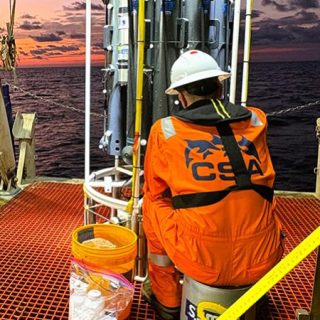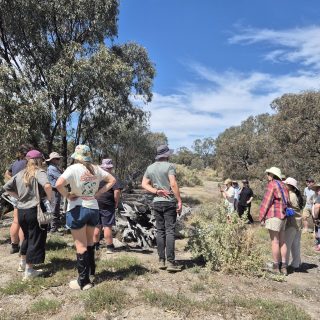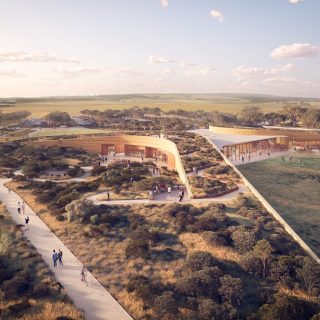Navigating Recognise Country in Western Sydney Aerotropolis
How to navigate Recognise Country planning requirements for Development Applications in the Western Sydney Aerotropolis.

The Department of Planning, Housing and Infrastructure (DPHI) NSW has released an important guideline on Recognising Aboriginal Country in the Aerotropolis development zone of Western Sydney.
The Biosis heritage team are experts in the field of Aboriginal Heritage approval processes in NSW and have met with several Government representatives to understand the context of this important guideline and to inform our competency in the new process.
You can view the guideline here.
About the Recognising Country requirements
One of the overarching objectives of the Western Sydney Aerotropolis plan for development is to ensure that future planning and design acknowledges the input of Traditional Custodians, and provides opportunities to Connect with Country, Design for Country and Care for Country.
Practitioners and assessors should ask themselves the following questions to guide planning, and design decisions, that start with Country:
- Has this project considered Country to inform the spatial layout?
- Does the project prioritise Country, including the environment, natural ecosystems, topography, fauna and spiritual connection?
- How can this decision restore or enhance Country to support a sustainable future for the Aerotropolis?
- Will this decision result in drastic and irreversible changes to this Country and community?
- How does the project promote connection to Country?
How can Biosis heritage specialists help?
Biosis will assist you to engage in meaningful consultation with Traditional custodians, knowledge holders and registered Aboriginal parties, and help you recognise Aboriginal culture and knowledge in your project through the design process.
Biosis will assist you to complete the template supplied by the Department of Planning (DPHI) to ensure you have met the Recognise Country requirements of Phase 2 of the Western Sydney Aerotropolis Development Control Plan 2022.
Biosis heritage consultants will assist you with your reporting requirements:
- Cultural Values Research.
- Recognise Country Response.
- Aboriginal Engagement Outcomes Report.
- Recognise Country Strategy.
Contact our senior NSW Biosis heritage specialists through our website here or email our Western Sydney or Sydney teams on sydney@biosis.com.au Tel: 02 9101 8700
What is the value of the Recognise Country response template?
The template has been produced to help guide you through this process. View the template here
- To support proponents in gathering the relevant information and evidence for how their proposal has responded to the Recognise Country requirements.
- Empower Aboriginal Stakeholders involved in the process to provide feedback on the process and make a declaration of how the proposal Recognises Country.
- Allow ready access for consideration by the assessment authority.
Which development applications does the new Recognise Country requirements apply to?
These Guidelines must be used by assessors, proponents and landowners who intend to lodge development applications and/or Master Plans in the Western Sydney Aerotropolis subject to meeting the following criteria:
- State Significant Development (SSD).
- State Significant Infrastructure (SSI).
- Master Plans as per the Western Parkland City State Environment Planning Policy.
- Development applications (including concept applications) on sites 20 hectares or more in size.
- Development applications progressing under the design excellence process.
- Development applications located within or intersects areas of high Aboriginal heritage sensitivity (where deemed appropriate by the responsible planning authority)
Are the Recognise Country planning requirements in the Aerotropolis different to current required heritage reporting?
Yes.
- These guidelines are separate to the Aboriginal Cultural Heritage Assessment (ACHA) However, the cultural values research may be integrated into the ACHA by the same heritage consultant. Cultural values research should be completed prior to the ACHA to help inform test excavations.
- These guidelines are also separate to the Aboriginal Cultural Heritage Consultation Requirements for Proponents 2010. That document sets out requirements to consult with Aboriginal people who hold knowledge about the significance of Aboriginal cultural heritage relevant to an application.
- An Aboriginal Heritage Impact Permit (AHIP) is required if you are planning an activity where harm to an Aboriginal object or declared Aboriginal Place cannot be avoided.






